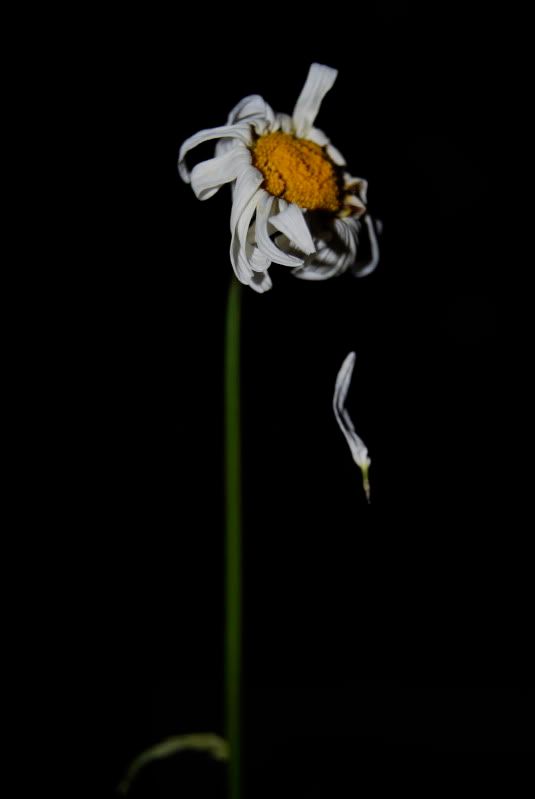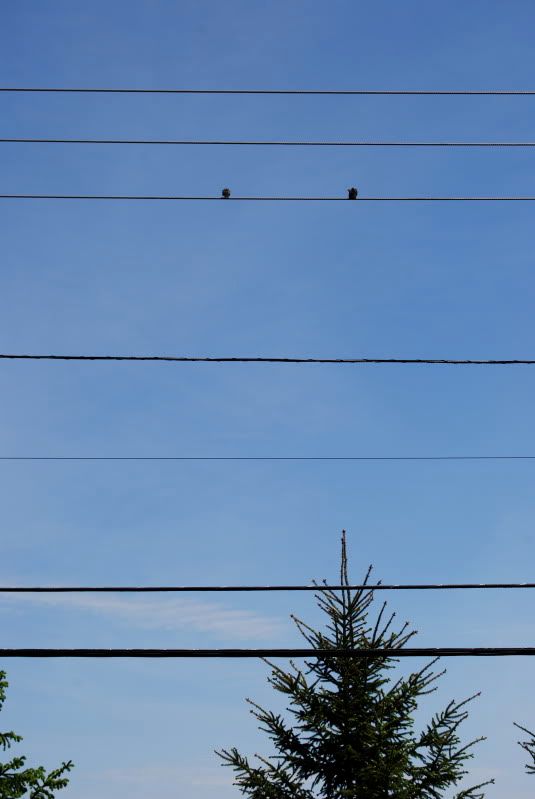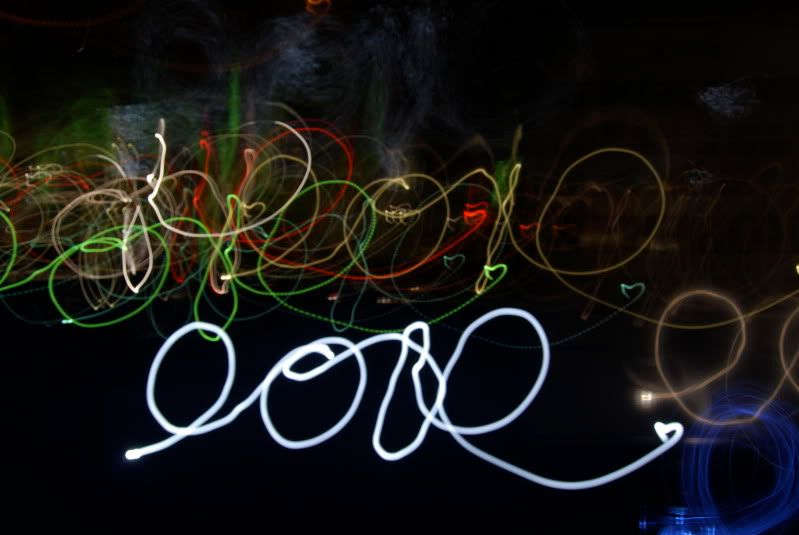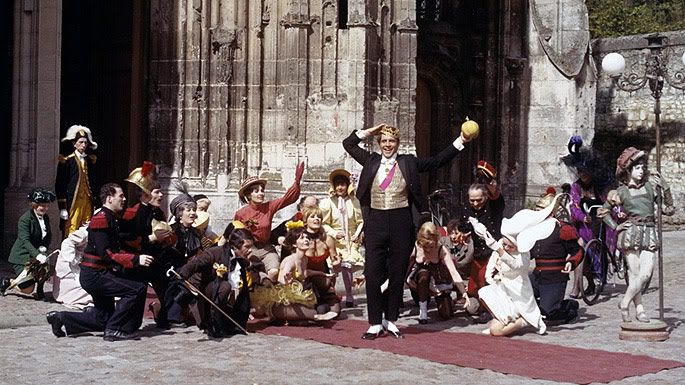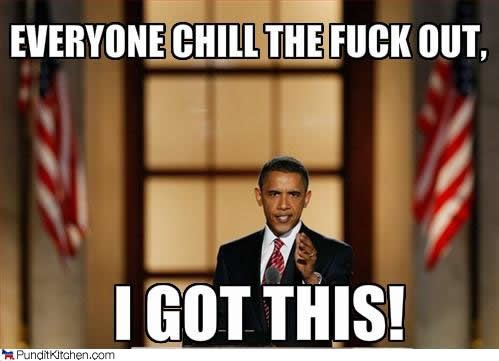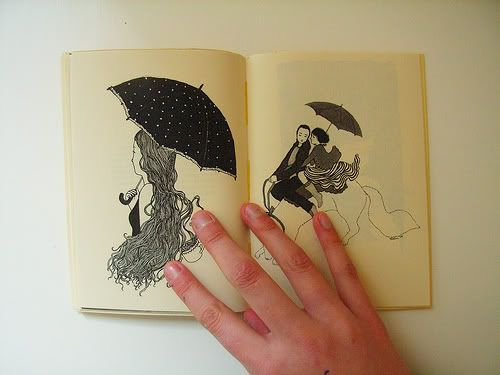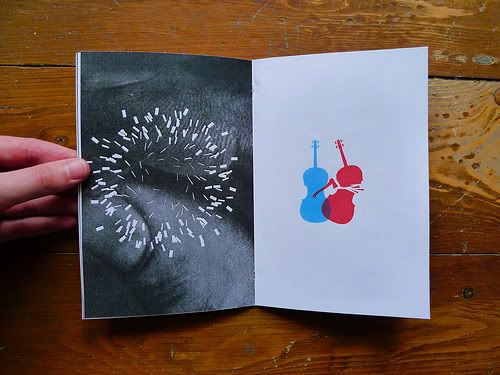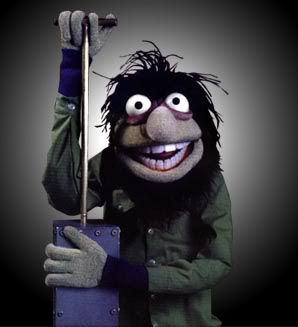Thursday, July 30, 2009
Issue 1.1 (July 2009.)
Turtles: John Barrett
*
But Not By God: Ed Reed
*
Every Road Needs Upkeep: Chaz Formichella
*
In Which the President Acknowledges a Meme.
*
Open Call for Submissions: Anonymous.
*
LESSONS TAUGHT FROM THE MOUND OF ST. LUKE'S FIELD:
Chuck MacLean
*
ELI BADRA IS FOLLOWING PHISH AROUND AND WRITING ABOUT THEM.
*
Photographs: Sarah Graziani.
*
Three Poems: Jess Del Balzo
*
Claverings: Charlie Pieper.
Every Road Needs Upkeep: Chaz Formichella
Did I mention Henry worked on the roads of time?
That kind of thing always slips by me.
Ho, ha.
So, at work one day, Henry accidentally misaligned a steel girder and a forty six year old man suffered a fatal heart attack. Another time, his hasty drill-bit work was responsible for a busload of children… well, let’s not say what happened to them.
Returning from work one afternoon, he found his wife rolled up with the milkman.
Yes, the milk of time. No, it’s not different from normal milk.
“I want a divorce,” Henry said through his mustache.
His wife replied in silence. Velvety silence.
“For the love of god, Maurine, you’re not eighteen anymore.” Henry stayed at his brother’s condo for several weeks, drinking himself into the couch. His brother was a turtledove.
A turtledove, in this story, is a monstrous fusion of a turtle and a dove…
And an octopus.
“Blarg!” said Henry’s brother, waving his slick tentacle arms. “Bleffrgh!”
“I don’t need to stay here, Francis, you can’t tell me what to do.”
“
“You know what?” Henry rose drunkenly from the couch and picked up Francis’ television set. Francis had bought the television set as a wedding gift for Henry, but had never given it to him.
Henry didn’t know that as he chucked it out the window.
Francis was stunned. His giant dove head retracted slightly into the turtle shell.
Henry stopped going to work.
The roads, concrete ribbons swaying in the winds of time, deteriorated.
Something awful, I’m sure, resulted.
A NOTE FROM THE EDITOR.
Thank you.
Best,
Mark "Plimpy" Binneroe, Editor-in-Chief
Wednesday, July 29, 2009
LESSONS TAUGHT FROM THE MOUND OF ST. LUKE'S FIELD: Chuck MacLean
“What the fuck was wrong with that one?” his father asks. Charlie shrugs. His father steps off the rubber, shaking his head.
The boy takes a deep breath. The sun is going down beyond right field and he has to squint to see. He picks up his bat and steps back into the box, leaning the bat against his shoulder. Looking out over the mound, he exhales. He squats down in his stance and tightens his grip on the end of the bat. He holds it straight up, wrists cocked; like Yaz used to - like a good power hitter should: all hips and speed.
His father throws in another one. It sails two feet over Charlie's head and rings the chain link on the backstop fence. Charlie lands on his hands, again. Why doesn’t he stop? The boy asks himself, lying in the dust.
Dad just bites his bottom lip, shakes his head like a wild horse. “Just stay in the fucking box,” He says, and walks over to the ball as it bounces along the third base line. “It’s not gonna hit you.”
“Okay,” Charlie says.
He pushes himself up, and makes a face as the stones dig into the cuts on his palms. A few wisps of blood have come through the top layer of skin, and he cautiously wipes the dust off his yellow jersey.
“You think Yaz would’ve dove out of the way of every pitch that went a little high on him?” Dad asks, dropping his big calloused hands to his sides. They make a sound like thunder clap.
“No,” Charlie says, and whispers under his tongue, “But I bet Tony Conigiliaro wished he had.”
Dad throws one at Charlie's head, flat footed. The ball pings off the head of the bat and knocks it out of Charlie’s hands, and the kid falls back on his ass, the bat rolling on the ground like a spent shell casing.
“You know what it’s like watching your son dive out of the way of every pitch?” His father asks, strangely calm. He walks off the mound, all the way to the backstop, and picks the ball up.
Charlie crawls to his feet. “Yeah.”
“Can you guess what that feels like?” His father asks, standing above him, tossing his black hair out of his black eyes.
“Probably embarrassing,” Charlie whispers.
His father doesn't answer as he walks back out to the mound. He just talks to himself. In the silence that follows Charlie thinks to himself: I have nowhere to go. He suddenly realizes he’s paralyzed. He can’t move. His arms are stuck holding the bat, his small hands aching, his arms locked at the elbows. His legs buckle, his thighs burn. His knees lock and pop, imperceptibly but uncontrollably. Please don’t make me move, please don’t ask a question, he says to himself. Charlie knows that if he has to move, if he has to answer in too many words, or say them too loudly, he won’t be able to hold it back. And that’s the last thing he wants right now, for that to happen.
“Yeah,” his father says, finally. “It is. It’s embarrassing," He violently nods his head, biting off the last words, "having a coward for a son.”
Charlie swallows. “I’m sorry.”
But Dad sees that Charlie isn’t moving, and that the boy isn't moving his lips when he talks. Suddenly knowing, Dad looks away. He kicks the dust off the rubber mound, but it won’t come off. It’s been burnt on from years of sun and being walked on. Dad mouths a silent “fuck” to himself and not knowing what to do he decides to toss in an easy one over the plate. A fat one. An olive branch. Let the kid win one, he thinks. But the bat never leaves Charlie’s shoulder and the ball hits the dirt. His father is astounded.
“You not even gonna try now?” He asks, holding his palms up at his sides. “You done?”
“Yeah.” Charlie coughs.
“No,” Dad decides, nodding towards the backstop. “You're not. Go get the ball.”
Beaten, Charlie backs out of the batter’s box. He tries not to make too sudden of a move, as he drops his chin to his chest and drags the bat on the sand, like chalk across slate. Just don’t look him in the eye, he says to himself, and you’ll be alright. Just keep your head down. He drops the bat at the backstop and heaves the ball out to the mound. His father catches it with one hand and starts pacing, thinking to himself.
"You’re too young to understand this," he begins, "but there's can be a certain honor in losing." He paws the ball in both hands, along the stitches. "There is something to be said for a man who takes his beatings and keeps going.”
Dad stops pacing. "Believe me, you never want to be this man, but if you end up as him at you least know you’re no less of a man for it.”
He sets his feet in the dirt, a knowing half frown on his face. “There’s something worthwhile about that man,” he adds.
Just throw the ball, Charlie thinks.
Dad tosses in another one, lightly - a pathetic gesture. It breaks Charlie's heart to see it now, but he half-heartedly swings, just trying to make contact, to get this over with. Let me go home, he thinks to himself, just let me go home. When he misses he struggles not to swear out loud, and he grinds his back teeth together, as if trying to wiggle them loose for the money under the pillow.
“It takes faith to do that, Charlie,” his father says, walking off the mound. “It takes a whole lot of faith to take a beating and keep coming. Not everyone can do that.”
As his father passes, Charlie backs away. His father ignores him, walks to the backstop and grabs the ball.
“Some people," his father says, pointing at Charlie, "are too afraid to even step into the box, let alone take their swings.”
Charlie has to look away from his father. He can't take another hole in him. So his eyes wander and his father keeps talking. But Charlie, he sees the sun coming out of the clouds and how the leaves dance in the trees out beyond right field, how their shadows wave in the breeze over the brown patches of outfield, where the big puddles form when it rains. He watches the younger kids run around the monkey bars in the playground, way out past centerfield, and for the first time he hears their squeals of joy, delayed for the distance. He notices the gray stones in the infield and the pieces of shells trailed in from the bottom of cleats. He hears the cars passing on the road behind them and an engine struggling to start in the parking lot. He can feel the calluses forming on his hands where the rubber of the handle gets in between his fingers and his palms; and he has the odd feeling that he will remember this moment for a long, long time.
And he fails to notice another pitch sailing in. It hits the dirt behind home plate and bounces to the back stop, ringing the fence. Charlie leaps out of the way.
“Christ!” His father yells, charging off the mound. “At least have the fucking faith to step in the goddamn box and look for a pitch to hit."
He walks up to Charlie, his finger leveled at the boy's throat. "Courage takes faith, kid, and let me tell you this: it's the fucking case with everything. It’s scary, but that’s life. If you were religious you’d have to believe that God’s there. In baseball, you gotta believe the pitcher is going to throw a strike. And you’ve always, ALWAYS have to be looking for a good one to hit.”
His father grabs the ball and walks back to the mound. He stops with his back turned to the plate and, for just a second, he studies the space beyond the outfield fence, the kids swinging form the monkey bars, as if suddenly remembering something. A slight breeze moves over the infield and echoes off through the trees.
Turning, he says, almost quietly: “If you take it on faith that the ball isn’t coming at your head, you can look for a good pitch,” he holds up the ball as if to signify what a good one looks like. “And if you’re looking for that, you won’t take any chances on a ball. And if you’re looking for that, you’ll know when it’s coming at your head.”
Dad fires one at Charlie's head. The boy sees it coming and falls flat on his back, and the ball rings off the backstop like a handful of pennies dropped into a coffee can. In a cloud of dirt, with the wind knocked out of his lungs, Charlie thinks to himself: Oh my God, I can’t hold it. His throat tightens. His eyes pin shut. Something wells up inside of his chest, like a great big sneeze, and he quickly turns over on his knees. He bites his cheek and spits into the dust and swears to himself, and he tries to breath despite the dirt floating into his face like cigarette smoke.
The ball slowly rolls back into the infield and his father bends down to pick it up.
“There was honor in what Tony C. did because he caught a bad break and he didn’t let it beat him,” Dad holds the ball up. “Even though he had every right to. He never played as well again, but he at least played it right.”
A small frown on his face, Dad shrugs, as if to say well, that’s all I got, kid. Good luck with it.
But as he turns around to walk back to the mound, he suddenly says, “If you don’t learn how to do that now," he says, "you’ll be afraid of everything for the rest of your life.”
Dad spins the ball in his right hand like a lucky coin – waiting. “I don’t know what else to tell you.”
Charlie gets up and licks the dirt from the sides of his mouth, and drags his sleeve across his face. His eyes bent against the falling sun, he stares out at the mound for a good, long while. Fuck him, he thinks. And he steps back into the box.Open Call for Submissions: Anonymous.
2. Literary Magazine seeks poems for discuss and javelin throwers. $20 reading fee.
3. Literary Magazine seeks something we can tape over the TV. $20 reading fee.
4. Literary Magazine seeks work by Franco-Prussian immigrants of Gaelic extraction who only speak elements of Creole, Hindi, and car wash advertising slogans. $20 reading fee.
5. Literary Magazine seeks work by the person seated to your left -- no, sorry, our left. $20 reading fee.
6. Literary Magazine seeks a Queen of Hearts to complete flush. $20 reading fee.
7. Literary Magazine seeks a manuscript that must be sent between the second and fourth week of September, mailed only on Tuesdays and Thursdays bearing an even number, only allowed to reach us on Wednesdays, and these only being days that end in an odd number. Otherwise, we won't open them. $20 reading fee.
8. Literary Magazine seeks blind submissions we can put our own names on. $20 reading fee.
9. Literary Magazine seeks to reward sycophants. No reading fee.
10. Literary Magazine seeks new, challenging work. Must be something we've already seen before. $20 reading fee.
Thursday, July 23, 2009
Three Poems: Jess del Balzo
Brooklyn Cracks Down
The young man looks both ways, whistling to himself as he prepares to cross the street. It is one of the first days of a spring that has been too long coming.
The officer watches—eyes narrowed, hungry—and waits.
And then, as the soles of his prey’s shoes touch the concrete in front of him, he says, “Son.”
“Yes sir?”
“What’s that, there—in your pocket?”
“What’s what, sir?”
“You wouldn’t be hiding anything, would you? Anything illegal?”
“Um, no sir.”
“So what’s that bulge in your coat pocket there?”
The young man slowly produces a book of poems. He looks at the ground.
Trouble was,
he knew what he had
and could not hold onto.
It was written there
in the orange moon and
its shadow-boxes of light
across the hillside
train tracks.
Years later, I would
wake up in the night and
throw away the clothes
that still smelled like
the back of the car
and that couch at that
friend’s house we went to
after, where I pretended
to be asleep just so
I wouldn’t have to talk
to him or anyone with a mind
to tell me what I should or
should not be doing
with the unowned mystery
of my sex,
the wild territory between
the legs, never mind
the heart.
Trouble is as trouble has been
taught to do. Some of us are born
willing and hungry to learn
the wrong things about
the late blood, the angry landscape,
the chorus of bipolar
electric light lovers.
Even at seventeen, I wondered
how I could ever prepare
a child for this world,
what anyone could possibly say
to explain the quiet
cruelty of experience, the way
some of us lay down
and fold our hands.
*
Regards
We say we try when we know we cannot do. If only it were easy to communicate the difference. Maybe then we would not need to resort to finger-painting lies down each other’s limbs in the dark. To think of the well-wishing lines I drew down the length of well-meaning arms and legs cuts cold and deep to the pit of my stomach.
There is nothing that hurts like the moment someone looks at you—happy—and you feel like you’re fresh out of batteries. I wish I’d understood in the shallow hours of careless that you cannot build a room for affection in your heart if there is not enough space. The wall has to go somewhere.
I come across regret whenever I clean the dusty shreds of dreams that slip through the crack between the bed and the wall. There are things I try to keep close, but even the knife under the pillow falls unreachable once in a while.
There is nothing I am waiting up for. I am not asking to be found. I just wish there was someone who could tell me what will and will not have to be swept up later.
When we become what we are, it is impossible to explain how. I could have tried, but the sharp blinking would have given me away. For all the disappearing acts I pulled, the lack of pointless loyalty, I thought you might want to know: the lights flicker every time I think of you.
Wednesday, July 22, 2009
Sunday, July 19, 2009
But Not By God: Ed Reed.
Douglas’ second ex-wife, Carolyne, drives over the strange rumbling corrugated metal of the bridge, drives over her dead son on her way to the precinct, chain-smoking Parliaments, blaring James Taylor, the latter of which no one can quite believe. She screams about how she’s seen fire and she’s seen rain. She drums on the steering wheel. The Xanax is wearing off, producing anxiety, producing drumming and barely melodic screaming. Driving to the precinct is a bad bad time to have the Xanax wear off, she thinks, so she screams more about the fire and rain she’s seen, and how that rain will at some point end, perhaps when her son comes back to her. Her phone rings, and she hears it, but she pretends she doesn’t.
Neil Haverman, Precinct captain, has absolutely nothing to tell Carolyne about her missing son, dreads her now weekly visit, has a speech all prepared for when she comes: he will look into her unfocused eyes, tell her that this disappearance is a product of her son’s chosen profession, that he obviously wants to be missing, is sort of required to be missing, and that there is no reason at all to assume anything unfortunate has happened, although his men will keep their eyes and ears open, as it were, to any news, but mostly: tough shit lady. He won’t say this last part, but he’ll want to.
Florence, Douglas’ first ex-wife, listens to all six rings of Carolyne’s phone, listens to her transparently fake and perky message (“Hi! This is Carolyne! I’d love to call you back, so leave your number! And a message! Bye bye!”), fundamentally misunderstands the way cell phone answering machines work, and leaves the following message: “Carolyne? Carolyne, I know you’re there, it’s Flo. Pick up the phone. Carolyne. Carolyne? Please, it’s important. It’s about Dougie. Carolyne? I know you know where he is, Carolyne, I just know it. Carolyne. Carolyne?” She then hangs up and weeps for three or four hours, clutching in one hand a framed copy of Douglas’ first front page article in the Ledger, back in eighty two, about the crisis of homelessness, and in the other hand an empty bottle of Bailey’s. Her dog, Dougie Jr., whines for food above his empty bowl.
Dr. Chauncey “Doc” Bracket, editor, journalist, taker of no-shit, sits at his desk at the Ledger and drums his fingers on the home keys of his computer keyboard, wishing they were the keys of a typewriter, smooth and round instead of coarse and vaguely sticky. He knows Leonard is out on long term assignment, following up on the great and hair-raising work of his father, and that not calling weekly as per the plan is not particularly a cause for alarm, since Douglas never called either, and he came back eventually, although then again he did seem like a caged animal post-assignment and he did truly disappear post-retirement, probably to someplace warm and wonderful and hard, like Ecuador maybe. Chauncey can picture Douglas in Ecuador, building houses for people who need them, drinking local brews, smoking local things that can be smoked, Douglas, that old tough wildcat. He still feels tense, however, wondering just how many weeks it’s been since Leo last called, cursing himself for not keeping track, still drumming his fingers (asdf jkl;, still not a typewriter, still no phone call), and needs to go verbally brutalize an intern for a punctuation mistake on his way out to the smoking area to feel any sort of peace.
The intern, Bethany, already becoming sort of jaded at nineteen, to her great and ambition-dulling chagrin, pulls into a convenience store on her way home and buys a pack of Parliaments for the very first time, shakily lights one, holds it all wrong, blows it out the window, feels the light-headedness that ushers her stress out into the world on her thin breath. She smokes too many and has to pull over to puke, pukes straight down through the loud and bizarre corrugated metal that makes up the roadbed of the Tippany bridge, pukes onto a vague leaf-covered dark shape next to a vague leaf-covered shiny object, thinking of Leo, who got her this job, who always seemed trapped, wondering how he’s doing, wondering why his eyes were always so dark, wondering why he always seemed called to from above, but not by God.
Saturday, July 18, 2009
Turtles by John Barrett
INT. AQUARIUM – DAY.
SCOTT, 23, is standing at the edge of the sea turtle tank, with a rock in hand.
SCOTT
Hey, Sean!
SEAN, 22, turns toward Scott.
SEAN
What, what is it?
SCOTT
Watch me hit this turtle in the head with a rock.
SEAN
Scott, don’t be a d…
Scott winds up and hits the turtle square in the head with a resounding CLUNK.
The TURTLE glides under the water.
Sean looks at Scott angrily. As he speaks, his voice gets incredibly high pitched, the words stream out faster and faster, and he waves his arms crazily.
SEAN
Man, how could you do such a horrible thing to that animal?
SCOTT
It’s a dumb turtle. What does it matter?
SEAN
It’s endangered first of all.
SCOTT
No it isn’t.
SEAN
Yes it is!
SCOTT
No, it’s swimming around in a nice, comfortable aquarium tank.
Sean stares angrily at Scott, but Scott doesn’t get it.
SEAN
Let’s just go home.
INT. TURTLE TANK – MOMENTS LATER
The turtles have all surrounded the turtle who got hit. He appears to be their leader.
He stands, points at the rock, then points to the outside of the tank.
The other turtles follow the leader turtle towards the side of the tank. They form lines, and run into the glass repeatedly until it finally breaks, releasing water and all of the turtles into the aquarium.
The turtles get up on their rear fins and begin to walk like humans, but very slowly. They pass the shark tank. One of the turtles makes a little turtle fist, and shakes it at the sharks in a threatening manner. The sharks cower in fear.
EXT. CITY STREET – NIGHT
The turtles walk very slowly down the street. The moon passes through the sky as night turns to day then back to night.
The Turtles are swarming. They approach a group of humans standing in line at a trendy nightclub (GYPSY BAR?). All of the men are dressed in the same button-down shirt, jeans, and dressy shoes. The women are all decked out in their slut-gear. Trashy is the best word.
The turtles slowly come closer and start crawling up people’s legs to their necks, and bite their jugular veins.
GYPSY BAR PATRON
(As a turtle climbs up his body)
Screw this, I ain’t getting out of line!
The turtle bites him on the jugular. The rest of the patrons are killed in a similar manner.
When all of the gypsy bar patrons are killed, the leader turtle again rises to his feet, motions with his flipper for the other turtles to follow him, and marches slowly onward.
As the turtles walk slowly down the street, a HARE runs very quickly past them.
Fade Out
Fade In
EXT. CITY STREET – LATER
People are running around in a panic. Some have turtles latched onto their necks. The turtles have blocked all the routes out of the street, so if the humans try to escape (as so many do) they are bitten and killed.
A SWAT team arrives to take on the turtle menace. They begin firing their automatic weapons at the turtles, but they manage you use their shells as shields to protect them from the bullets.
One turtle picks up his fellow turtle, and throws him like a captain America shield.
The whole of the carnage takes place at a remarkably fast pace compared to the turtle’s walking pace.
PAN OUT TO:
INT. APARTMENT – LATER
The television screen is displaying the carnage just seen from a wide angle.
Sean sits on the couch watching the news.
ANNOUNCER (O.S.)
We are now getting word that three hundred people are now laying in the
(MORE)
ANNOUNCER (CONT’D)
streets of Boston, dead, very dead. Apparently…uh…they were bitten by turtles. Is that right? Turtles?
Can they do that?
Sean turns off the T.V. with a look of absolute horror on his face.
INT. HALLWAY – SAME
The turtles walk down the Hall to very badass music. Their faces and flippers are coated in blood, and they move as though being shot in slow motion. That is, of course, until the illusion is ruined by a person walking at normal speed who passes them. He, however, is brutally killed by the turtles.
INT. APARTMENT – SAME
There is a KNOCK at the DOOR.
Sean opens the door to see a large group of turtles at the door. He and the leader turtle stare at each other for a moment. Sean doesn’t need to be told who they’ve come for so he simply turns around.
SEAN
It’s for you.
SCOTT
Man!
Scott goes to the door.
SCOTT (CONT’D)
What do you…Holy crap!
TURTLE
Yeah! You threw a rock at me, and you need to be punished for what you did. I mean that was really…uncool man.
SCOTT
Wait, you’re a turtle…
TURTLE
Yes, and I can talk. Now, about this morning’s rock throwing.
SCOTT
Oh yeah, sorry about that. I was just being kind of a jerk.
TURTLE
And you will apologi… Wait, what?
SCOTT
Sorry.
TURTLE
Oh, well…um…I guess that’s all I really needed. Um…come on guys, let’s go back.
Sean gets up.
SEAN
Wait, you guys kill hundreds of people, and now you just get an apology and that’s it?
TURTLE
Yeah, pretty much. Oh right…sorry about that. Yeah, that was lame.
SEAN
Yeah!
SCOTT
Don’t worry about it.
Sean looks upset at that, but not surprised.
TURTLE
Anyway, thanks for being so understanding. Just, you know, don’t let it happen again.
SCOTT
Sure. Bye guys.
TURTLE
Bye!
The turtles leave.
Fade Out
Fade In
EXT. NYC – DAY
Scott has a rock in his hand. Sean is standing next to him.
SCOTT
Hey Sean, watch me hit King Kong with this rock!
FADE TO BLACK
